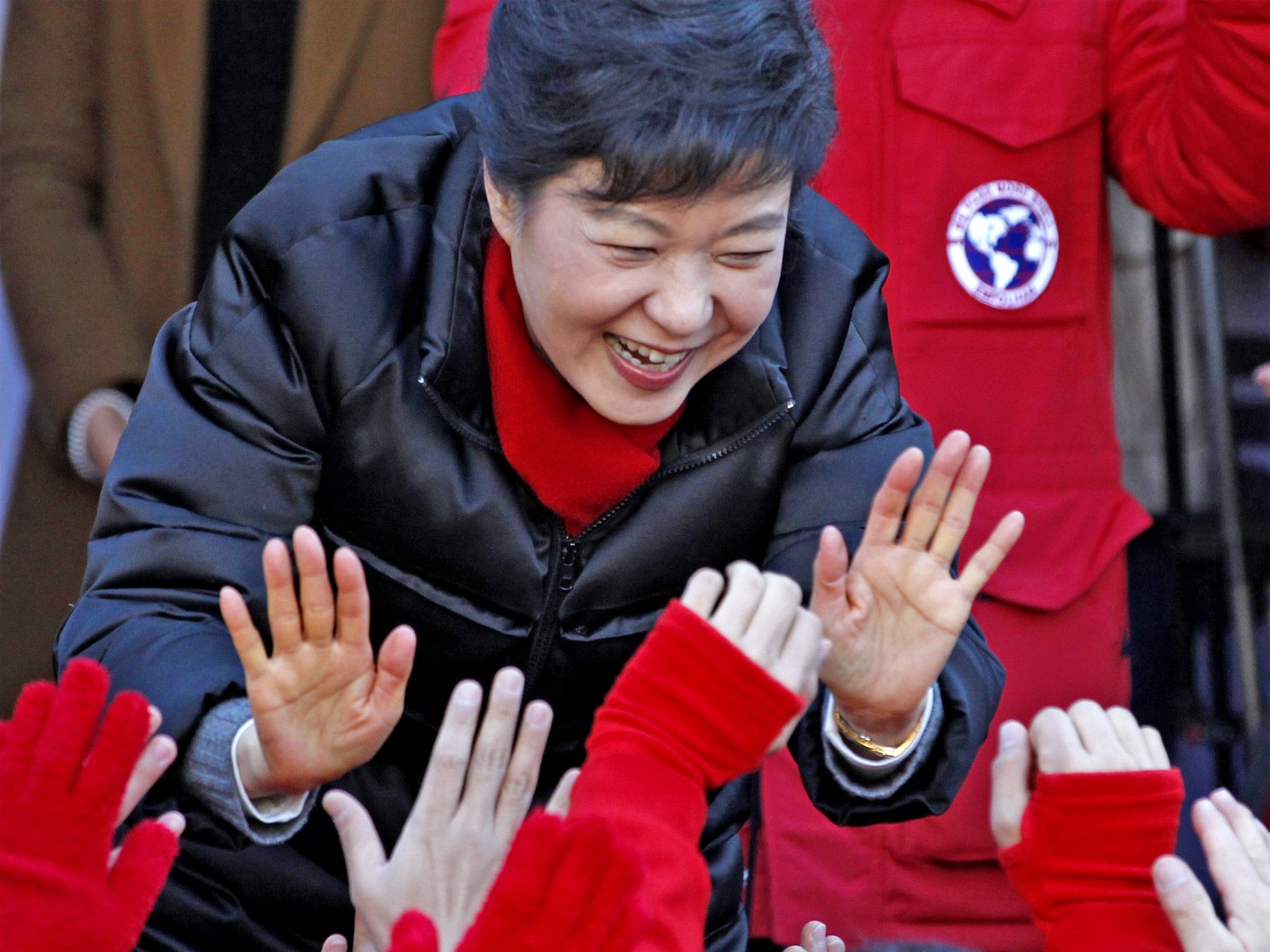Dictator's daughter asks South Korea's older generation to make her president
Polls too close to call as Park Geun-hye bids to become country's first female leader

In bitterly freezing cold, conservative presidential candidate Park Geun-hye implored thousands of middle-aged and elderly Koreans to "look to the future" and vote for her today in a presidential election widely seen as too close to call.
The nature of the throng massed yesterday in central Seoul said more about her appeal than did her words. Ms Park, daughter of the dictator Park Chung-hee, assassinated by his intelligence chief in 1979, counts on older generations of Koreans to defeat the liberal Moon Jae-in, beloved by younger voters who see him as the antidote to "old politics" and endemic corruption.
Ms Park and Mr Moon are similar in age – she's 60 and he's 59 – but the make-up of their followers suggests fissures in society. Ms Park preached the panacea of a "creative economy" as she warned that Mr Moon represents a throwback to "the failure of the old administration".
That's a jab not at the government of President Lee Myung-bak, barred by Korea's constitution from seeking a second five-year term, but at that of his predecessor, Roh Moo-hyun, whose presidency was marred by economic stagnation. Mr Moon, a human rights attorney who served as Mr Roh's chief of staff, shapes his battle against Ms Park as a crusade for democracy against a return to authoritarian rule.
"The only thing that can save the Republic of Korea from this crisis is you," he said at a rally on the vast square in front of Seoul Station, two miles from where Ms Park wound up her campaign.
Mr Moon is believed to have nearly caught up with Ms Park in the polls after television debates in which he castigated the government for failing to deal effectively with education, medical care and an economy in which young people have difficulty finding jobs.
The main hurdles for Ms Park are living down her associations with President Lee, a former Hyundai Construction chairman seen as favouring big business, as well as her personal legacy as Park Chung-hee's daughter. Ms Park has had to bow in apology to those who "suffered wounds and hardships" in the 18 years in which her father ruled.
Mr Moon consolidated a strong following after persuading a popular independent, multi-millionaire software entrepreneur Ahn Cheol-soo, to give up his campaign and support him. Then the leftist Lee Jung-hee quit the race, asking her supporters to vote for Mr Moon and help rid the government of "old corrupt politicians."
Join our commenting forum
Join thought-provoking conversations, follow other Independent readers and see their replies
Comments
Bookmark popover
Removed from bookmarks